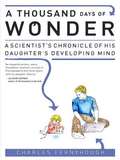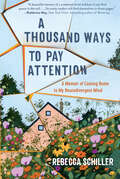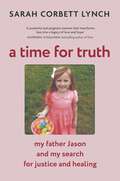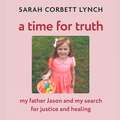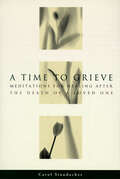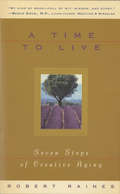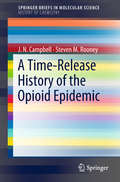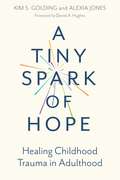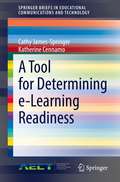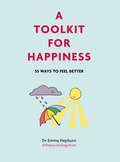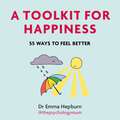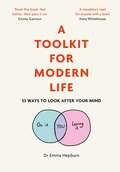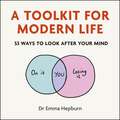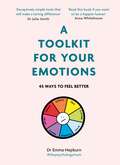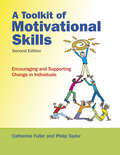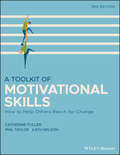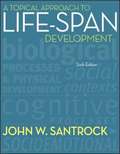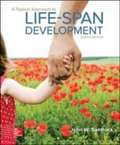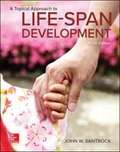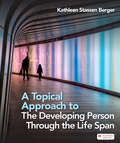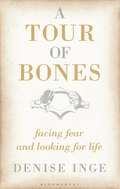- Table View
- List View
A Thousand Days of Wonder
by Charles FernyhoughA father's intimate look at his daughter's developing mind from birth to age three Unlike any other time in our lives, we remember almost nothing from our first three years. As infants, not only are we like the proverbial blank slate but our memories are like teflon: nothing sticks. In this beautifully written account of his daughter's first three years, Charles Fernyhough combines his vivid observations with a synthesis of developmental theory, re-creating what that time, lost to the memory of adults, is like from a child's perspective. In A Thousand Days of Wonder, Fernyhough, a psychologist and novelist, attempts to get inside his daughter's head as she acquires all the faculties that make us human, including social skills, language, morality, and a sense of self. Written with a father's tenderness and a novelist's empathy and style, this unique book taps into a parent's wonder at the processes of psychological development.
A Thousand Plateaus: Capitalism and Schizophrenia
by Gilles Deleuze Felix GuattariPostmodern analysis of the culture of late capitalism.
A Thousand Ways to Pay Attention: Discovering The Beauty Of My Adhd Mind--a Memoir
by Rebecca SchillerNow in paperback: A captivating, heralded memoir, "unflinching and full of truth" (Katherine May), of a woman making a home on a small farm while grappling with an unexpected ADHD diagnosis “When you think about ADHD . . . do you picture a woman in the bucolic English countryside, raising her children along with an assortment of animals and vegetables? Why not?”—Salon Moving to a small farm is Rebeca Schiller’s dream come true. But as her young family adjusts to a new life in the countryside, her dream is threatened by something within. I’m aware of everything, all at once, which is too much. As Rebecca’s symptoms mount—frequent falls, rages, and strange lapses in memory—her doctors are baffled and her family unmoored. Finally comes a diagnosis: severe ADHD. For Rebecca, it is the start, not the end, of a quest for understanding. As she scrambles to support both family and farm, her focus spirals: from our current climate crisis to long-extinct lynx in the shadows of ancient oaks and the forgotten women who tended this land before her, their stories hidden just beneath the surface of history. In this luminous, heralded memoir of one woman’s newfound neurodivergence, attention is not deficient—but abundant. Publisher’s Note: A different version of this book has been published under the title Earthed in the United Kingdom.
A Time for Truth: My Father Jason and My Search for Justice and Healing
by Sarah Corbett Lynch'A powerful and poignant memoir that transforms loss into a legacy of love and hope' Katriona O'Sullivan, bestselling author of PoorAt approximately 3.15 a.m. on 2 August 2015, eight-year-old Irish girl Sarah Corbett Lynch was lifted from her bed by a Davidson County police officer and carried downstairs, shielded from the chaos that had broken out around her.Hours passed before Sarah learned that her beloved father Jason was dead. And the people who killed him were Sarah's stepmother Molly Martens and her father Tom.Now Sarah tells her story for the first time and reveals the startling truth of life behind closed doors in her family's suburban North Carolina home.Sarah recalls the weeks and months leading up to that night in August, and the use of manipulation and gaslighting by Molly Martens - the only mother she had ever known. She describes the traumatic years after her father's death as she and her brother Jack fought for justice from the safety of their new loving home in Limerick, Ireland, with Jason's family.A Time for Truth is a unique testimony of devastation, survival and hope, against the odds.
A Time for Truth: My Father Jason and My Search for Justice and Healing
by Sarah Corbett Lynch'A powerful and poignant memoir that transforms loss into a legacy of love and hope' Katriona O'Sullivan, bestselling author of PoorAt approximately 3.15 a.m. on 2 August 2015, eight-year-old Irish girl Sarah Corbett Lynch was lifted from her bed by a Davidson County police officer and carried downstairs, shielded from the chaos that had broken out around her.Hours passed before Sarah learned that her beloved father Jason was dead. And the people who killed him were Sarah's stepmother Molly Martens and her father Tom.Now Sarah tells her story for the first time and reveals the startling truth of life behind closed doors in her family's suburban North Carolina home.Sarah recalls the weeks and months leading up to that night in August, and the use of manipulation and gaslighting by Molly Martens - the only mother she had ever known. She describes the traumatic years after her father's death as she and her brother Jack fought for justice from the safety of their new loving home in Limerick, Ireland, with Jason's family.A Time for Truth is a unique testimony of devastation, survival and hope, against the odds.
A Time for Truth: My Father Jason and My Search for Justice and Healing
by Sarah Corbett Lynch'A powerful and poignant memoir that transforms loss into a legacy of love and hope' Katriona O'Sullivan, bestselling author of PoorAt approximately 3.15 a.m. on 2 August 2015, eight-year-old Irish girl Sarah Corbett Lynch was lifted from her bed by a Davidson County police officer and carried downstairs, shielded from the chaos that had broken out around her.Hours passed before Sarah learned that her beloved father Jason was dead. And the people who killed him were Sarah's stepmother Molly Martens and her father Tom.Now Sarah tells her story for the first time and reveals the startling truth of life behind closed doors in her family's suburban North Carolina home.Sarah recalls the weeks and months leading up to that night in August, and the use of manipulation and gaslighting by Molly Martens - the only mother she had ever known. She describes the traumatic years after her father's death as she and her brother Jack fought for justice from the safety of their new loving home in Limerick, Ireland, with Jason's family.A Time for Truth is a unique testimony of devastation, survival and hope, against the odds.
A Time to Grieve: Meditations for Healing After the Death of a Loved One
by Carol StaudacherA collection of truly comforting, down-to-earth thoughts and meditations -- including the authentic voices of survivors -- for anyone grieving the loss of a loved one.
A Time to Live
by Robert RainesIn A Time To Live, Robert Raines explores the spiritual and emotional dimensions of what can be the most rewarding time of life. Drawing on his experiences as an ordained minister and as director of a non-denominational retreat center focusing on issues of personal growth, Raines delineates the important passages we must all make from our middle years in the process of growing older. In an approach that is both meditative and inspirational, drawing from a variety of backgrounds, anecdotes, and literature, Raines provides a new perspective on the aging process and its implications. To make the most of this ultimate period of life, he argues, we must each confront certain issues: waking up to mortality, embracing sorrow, savoring blessedness, re-imagining work, nurturing intimacy, seeking forgiveness, and taking on the mysterious process of exploring what is yet to be done in life with a sense of possibility and hope. For the millions of baby boomers just entering their fifties and others approaching their sixties who are determined to be aware and take advantage of the challenges they face, A Time To Live, is the only book to directly address their needs. Sure to be a welcome and important spiritual guide for many, it offers the possibility of fulfillment and personal satisfaction.
A Time-Release History of the Opioid Epidemic (SpringerBriefs in Molecular Science)
by Steven M. Rooney J. N. CampbellThis Brief takes the reader on a chemical journey by following the history for over two centuries of how an opiate became an opioid, thus spawning an empire and a series of crises. These imperfect resemblances of alkaloids are both natural and synthetic substances that, particularly in America, are continually part of a growing concern about overuse. This seemed an inviting prospect for those in pain, but as the ubiquitous media coverage continues to lay bare, the levels of abuse point to the fact that perhaps an epidemic is upon us, if not a culture war. Seeking answers to how and why this addiction crisis transpired over two hundred years of long development, this Brief examines the role that the chemistry laboratory played in turning patients into consumers. By utilizing a host of diverse sources, this Brief seeks to trace the design and the production of opioids and their antecedents over the past two centuries. From the isolation and development of the first alkaloids with morphine that relieved pain within the home and on the battlefield, to the widespread use of nostrums and the addiction crisis that ensued, to the dissemination of drugs by what became known as Big Pharma after the World Wars; and finally, to competition from home-made pharmaceuticals, the progenitor was always, in some form, a type of chemistry lab. At times, the laboratory pressed science to think deeply about society's maladies, such as curing disease and alleviating pain, in order to look for new opportunities in the name of progress. Despite the best intentions opioids have created a paradox of pain as they were manipulated by creating relief with synthetic precision and influencing a dystopian vision. Thus, influence came in many forms, from governments, from the medical community, and from the entrepreneurial aspirations of the general populace. For better, but mostly for worse, all played a role in changing forever the trajectory of what started with the isolation of a compound in Germany. Combining chemistry and history in a rousing new long-form narrative that even broadens the definition of a laboratory, the origins and future of this complicated topic are carefully examined.
A Tiny Spark of Hope: Healing Childhood Trauma in Adulthood
by Kim Golding Alexia JonesI could not ignore the tiny spark of hope that whispered to me that there might be someone with whom I could be vulnerable and real, and that this time they might just not let me down...This is the story of Alexia and her therapist Kim, and their three-year therapy journey to begin Alexia's path to recovery. Written from both perspectives, it is a powerful and revealing account of a therapist-client relationship. Together, the authors show the manifold challenges that adult survivors of childhood abuse have to overcome, and offer insight to all therapists on how relational interventions can pave a way to healing.
A Tool for Determining e-Learning Readiness (SpringerBriefs in Educational Communications and Technology)
by Katherine Cennamo Cathy James-SpringerThis book presents a tool to determine e-learning readiness in workplace organizations. It offers a case study of the design and development process and outlines factors to be taken into account to determine e-learning readiness. It details the four objectives of this tool: to highlight specific parameters for determining e-learning readiness, to provide a systematic process to determine the readiness of an organization, to enable flexibility for the environmental context, and to capture the interrelatedness of the many areas in the organization. Next, it discusses the main element of the tool: surveys that are used to facilitate collection of data on organizational, learner and technology readiness. The book concludes with a look at practical ways of using the information gathered from the data produced.
A Toolkit for Happiness: 55 Ways to Feel Better
by Dr Emma Hepburn'Mandatory for anyone with a brain' - Anna Whitehouse, founder of Mother Pukka'Relatable, practical and knowledgeable' - Gemma Bray, creator of The Organised Mum Method From clinical psychologist and author of A Toolkit for Modern Life, Dr Emma Hepburn, comes A Toolkit for Happiness - the ultimate guide to long-term and sustainable happiness.Using her much-loved trademark illustrations, Dr Hepburn arms us with 55 accessible and easy-to-use tools to boost our moods and feel better. She teaches us that happiness is as much about weathering the storms of life, accepting its natural ebbs and flows, as it is about enjoying the sunny weather - and that by implementing small and simple changes we can build a more compassionate brain that carries us through our daily lives, no matter the weather.From practical tools to aid you on those extra stormy days to thought-provoking exercises for your day-to-day mental wellbeing, A Toolkit for Happiness will you to cultivate positive habits, better understand your emotions and put you on the path to a healthier and happier you.
A Toolkit for Happiness: 55 Ways to Feel Better
by Dr Emma Hepburn'Mandatory for anyone with a brain' - Anna Whitehouse, founder of Mother Pukka'Relatable, practical and knowledgeable' - Gemma Bray, creator of The Organised Mum Method From clinical psychologist and author of A Toolkit for Modern Life, Dr Emma Hepburn, comes A Toolkit for Happiness - the ultimate guide to long-term and sustainable happiness.Using her much-loved trademark illustrations, Dr Hepburn arms us with 55 accessible and easy-to-use tools to boost our moods and feel better. She teaches us that happiness is as much about weathering the storms of life, accepting its natural ebbs and flows, as it is about enjoying the sunny weather - and that by implementing small and simple changes we can build a more compassionate brain that carries us through our daily lives, no matter the weather.From practical tools to aid you on those extra stormy days to thought-provoking exercises for your day-to-day mental wellbeing, A Toolkit for Happiness will you to cultivate positive habits, better understand your emotions and put you on the path to a healthier and happier you.
A Toolkit for Happiness: 55 Ways to Feel Better
by Emma Hepburn'Mandatory for anyone with a brain' - Anna Whitehouse, founder of Mother Pukka'Relatable, practical and knowledgeable' - Gemma Bray, creator of The Organised Mum Method From clinical psychologist and author of A Toolkit for Modern Life, Dr Emma Hepburn, comes A Toolkit for Happiness - the ultimate guide to long-term and sustainable happiness.Using her much-loved trademark illustrations, Dr Hepburn arms us with 55 accessible and easy-to-use tools to boost our moods and feel better. She teaches us that happiness is as much about weathering the storms of life, accepting its natural ebbs and flows, as it is about enjoying the sunny weather - and that by implementing small and simple changes we can build a more compassionate brain that carries us through our daily lives, no matter the weather.From practical tools to aid you on those extra stormy days to thought-provoking exercises for your day-to-day mental wellbeing, A Toolkit for Happiness will you to cultivate positive habits, better understand your emotions and put you on the path to a healthier and happier you.
A Toolkit for Modern Life: 53 Ways to Look After Your Mind
by Dr Emma Hepburn'Emma has a unique way of cutting through to the heart of the issues we all face day-in-day-out. There isn't another book out there like this and it should be a mandatory read for anyone with a brain.' - Anna Whitehouse, founder of Mother Pukka In this warm, wise book, clinical psychologist Dr Emma Hepburn (Instagram's @thepsychologymum) introduces her proven and practical tools for taking care of your mental and emotional wellbeing every day.Using her trademark illustrations, Dr Hepburn (aka @thepsychologymum) shines a welcome ray of light into the neglected corners of your brain. From identifying what triggers unhappy thoughts to overcoming the fear of making mistakes, A Toolkit for Modern Life will help you to cultivate positive habits and feel more confident, happier and in tune with yourself.* Call out and manage feelings of imposter syndrome* Answer back to your inner critic* Become aware of and monitor your emotional capacity* Spot unhelpful thoughts and develop more helpful patterns of thinking* Understand how the emotions cycle affects you* Identify what triggers anxiety for you and how to intercept it* Overcome the fear of making mistakes* Spot and call out your 'catastrophizing'* Identify and disarm social media comparisons* Align your decisions and actions with your core values* Assemble your own mental health toolkit for life
A Toolkit for Modern Life: 53 Ways to Look After Your Mind
by Dr Emma Hepburn'Emma has a unique way of cutting through to the heart of the issues we all face day-in-day-out. There isn't another book out there like this and it should be a mandatory read for anyone with a brain.' - Anna Whitehouse, founder of Mother PukkaIn this warm, wise audiobook, clinical psychologist Dr Emma Hepburn talks you through her proven and practical tools for taking care of your mental and emotional wellbeing every day.Let Dr Hepburn (Instagram's @thepsychologymum) shine a welcome ray of light into the neglected corners of your brain. From identifying what triggers unhappy thoughts to overcoming the fear of making mistakes, A Toolkit for Modern Life will help you to cultivate positive habits and feel more confident, happier and in tune with yourself.* Call out and manage feelings of imposter syndrome* Answer back to your inner critic* Become aware of and monitor your emotional capacity* Spot unhelpful thoughts and develop more helpful patterns of thinking* Understand how the emotions cycle affects you* Identify what triggers anxiety for you and how to intercept it* Overcome the fear of making mistakes* Spot and call out your 'catastrophizing'* Identify and disarm social media comparisons* Align your decisions and actions with your core values* Assemble your own mental health toolkit for life(P)2020 Quercus Editions Limited
A Toolkit for Modern Life: 53 Ways to Look After Your Mind
by Emma Hepburn'Emma has a unique way of cutting through to the heart of the issues we all face day-in-day-out. There isn't another book out there like this and it should be a mandatory read for anyone with a brain.' - Anna Whitehouse, founder of Mother Pukka In this warm, wise book, clinical psychologist Dr Emma Hepburn (Instagram's @thepsychologymum) introduces her proven and practical tools for taking care of your mental and emotional wellbeing every day.Using her trademark illustrations, Dr Hepburn (aka @thepsychologymum) shines a welcome ray of light into the neglected corners of your brain. From identifying what triggers unhappy thoughts to overcoming the fear of making mistakes, A Toolkit for Modern Life will help you to cultivate positive habits and feel more confident, happier and in tune with yourself.* Call out and manage feelings of imposter syndrome* Answer back to your inner critic* Become aware of and monitor your emotional capacity* Spot unhelpful thoughts and develop more helpful patterns of thinking* Understand how the emotions cycle affects you* Identify what triggers anxiety for you and how to intercept it* Overcome the fear of making mistakes* Spot and call out your 'catastrophizing'* Identify and disarm social media comparisons* Align your decisions and actions with your core values* Assemble your own mental health toolkit for life
A Toolkit for Your Emotions: 45 ways to feel better
by Dr Emma HepburnIn A Toolkit for Your Emotions, Emma takes a deep dive into how we feel and explains all the tools you need to intercept and redirect challenging emotion. From joy to anger, shame to stress and anxiety, Emma has practical and effective ways to feel instantly calmer and more content.Each topic is illustrated with Emma's well-loved illustration to make them accessible, meaningful and memorable. Dr Emma Hepburn is the most well-known psychologist on Instagram (@thepsychologymum, 135k followers) and has won numerous awards for her contribution to mental health awareness.
A Toolkit of Motivational Skills
by Catherine Fuller Phil TaylorHow do you motivate someone to change a pattern of behaviour? This is an issue faced daily by professionals working in healthcare and criminal justice systems. Motivational interviewing is a style of communication developed for working with substance abuse, but found to be effective for work with a variety of people who are struggling with the idea of behaviour change. This workbook is a complete guide to the motivational approach for any professional who needs to help others to change.
A Toolkit of Motivational Skills: How to Help Others Reach for Change
by Catherine Fuller Phil Taylor Kath WilsonA Toolkit of Motivational Skills, Third Edition, draws on the latest research to show how the Motivational Interviewing approach can be effectively utilized to draw out and sustain an individual’s internal motivation for behavioral change. Updated with a wide range of applications and practical examples of motivational techniques which have effectively helped others to change Updated with a wide range of applications and practical examples of motivational techniques which have effectively helped others to change Features a variety of supplemental resources including 16 online video examples of MI in action, with a workbook chapter that helps readers analyse each video in detail Includes new illustrations and diagrams designed to amplify the text and make it an engaging and enjoyable reading experience
A Topical Approach To Life-span Development, 6th Ed.
by John SantrockConnect with Santrock 6th edition and connect with success. Informed and driven by research. At McGraw-Hill, we have spent thousands of hours with you and your students, working to understand the key needs and concerns you face in Human Development courses. The most common topics raised include managing the vast amount of content inherent to a Lifespan course and ensuring the dependability of the assigned material–is it current and accurate? The result of this research is John Santrock's A Topical Approach to Lifespan Development 6e. Santrock 6e ensures students complete and understand the assigned material in a number of ways. Santrock's hallmark Learning Goals pedagogy provides a comprehensive roadmap to the text material, clearly pointing out the core concepts fundamental to students' learning and performance. An adaptive learning system increases students' efficiency in studying by identifying what they know and don't know and providing in-the-moment guides to learning what they do not. The research and development of the 6th edition indicated that students said that highlighting connections among the different aspects of life-span development would help them to better understand the concepts. This recurring theme of connections–Developmental Connections, Topical Connections, Connecting Development to Life, Connecting with Careers, and Connections through Research–ties together concepts from across chapters to reinforce the learning process and connects the material to students' everyday lives and future aspirations. And the new Milestones video and assessment program helps bring the course material to life, so your students can witness development as it unfolds. And of course, all of this material is informed by our unique board of expert contributors–a who's who of developmental psychology–who ensure the material is as accurate and up-to-date as possible.
A Topical Approach To Lifespan Development (8th Edition)
by John W. SantrockAs a master teacher, John Santrock connects students to current research and real-world application, helping students see how developmental psychology plays a role in their own lives and future careers. Through an integrated, personalized digital learning program, students gain the insight they need to study smarter and improve performance.
A Topical Approach to Lifespan Development
by John SantrockAs a master teacher, John Santrock connects students to current research and real-world application, helping students see how developmental psychology plays a role in their own lives and future careers. Through an integrated, personalized digital learning program, students gain the insight they need to study smarter and improve performance.
A Topical Approach to the Developing Person Through the Life Span
by Kathleen Stassen BergerThis is not a reorganized iteration of another Berger textbook, but rather a fully reconceived first edition exploring human development topic by topic. But as always with Berger, it is exceptionally accessible and compelling, distinguished by an engaging narrative voice, wide-ranging cultural perspective, and an emphasis on relating universal themes to students' own lives.
A Tour of Bones: Facing Fear and Looking for Life
by Denise IngeAuthor, academic, and adventurer, Denise Inge grew up in a large and rambunctious family on the east coast of America. She crossed the Sahara, charmed snakes in Marrakech and cycled the Adirondack mountains but her latest adventure is an interior one. It starts with the discovery that her house is built on a crypt full of human skeletons. Facing her fear of these strangers' bones takes her to other charnel houses in Europe and on a journey into the meaning of bones themselves. This exploration, though it began before her diagnosis with an inoperable sarcoma, takes on a new significance when the question of living well in the face of mortality abruptly ceases to be hypothetical.<P><P> A Tour of Bones is a passionate testament to the conviction that living is more than not dying and that contemplating mortality is not about being prepared to die but about being prepared to live.
